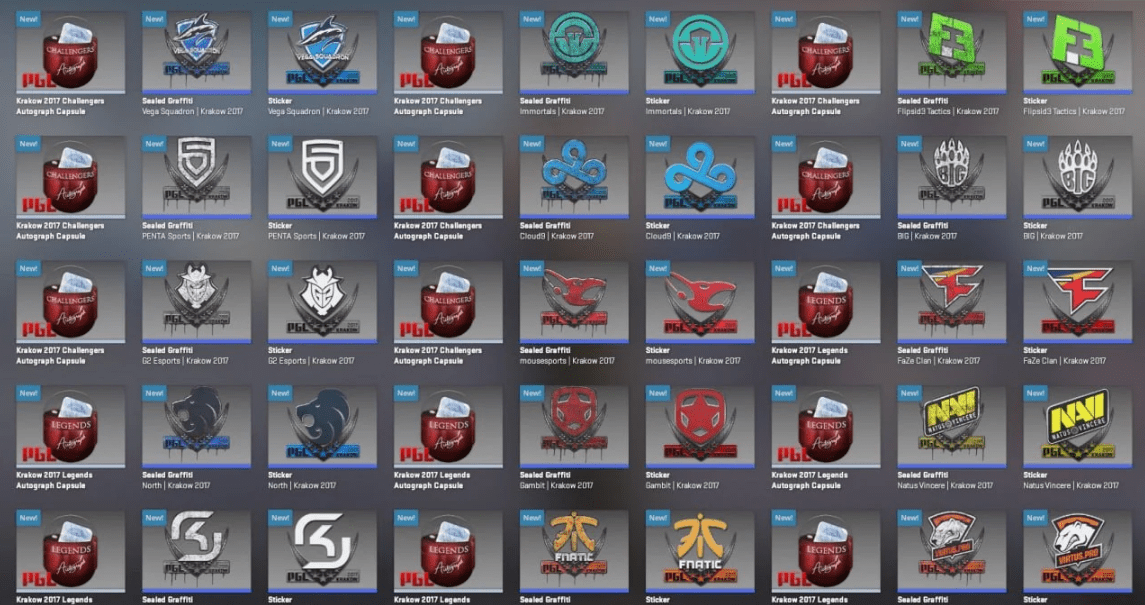A software glitch on Steam permitted the acquisition of games and items that were not accessible for purchase

A recent update to the Steam shopping cart system introduced an unintended consequence, allowing users to make purchases of items and games that were no longer available in the store. This unexpected feature caught the attention of vigilant gamers who quickly noticed the glitch. As word spread among the gaming community, it triggered a surge in unauthorized transactions as users capitalized on the opportunity to acquire items that were previously unavailable. The discovery of this bug sparked a mix of reactions within the gaming community. Some users, realizing the temporary nature of the glitch, took advantage of the situation to acquire rare or highly sought-after items that they had missed out on before. Others, however, raised concerns about the potential impact on the Steam platform’s integrity, fearing that the influx of unauthorized transactions could undermine the fairness of the system and negatively affect the overall user experience. Valve Corporation, the company behind Steam, was swift to respond to the issue. Upon learning of the bug, they immediately initiated efforts to rectify the problem and restore the integrity of the shopping cart system. In a public announcement, Valve acknowledged the glitch and assured users that steps were being taken to address the situation promptly.
Steam’s customer support team also played a vital role in managing the fallout from the bug. They worked tirelessly to investigate and resolve reported cases of unauthorized transactions, providing refunds where appropriate and implementing additional security measures to prevent further exploits of the glitch. As the situation unfolded, Steam users were reminded of the importance of ethical conduct within the gaming community. The incident served as a reminder that even unintentional loopholes can have significant consequences and highlighted the need for constant vigilance to maintain a fair and secure gaming environment. In the aftermath of this incident, Valve Corporation implemented rigorous testing procedures to minimize the likelihood of similar bugs occurring in the future. They also expressed gratitude for the community’s patience and understanding throughout the resolution process. Overall, while the bug on Steam allowed users to purchase unavailable games and items, it served as a reminder of the challenges faced by online platforms in maintaining system integrity and the importance of swift action to address unforeseen issues.
Steam Cart Bug: Unintended Consequences and Community Reactions
The recent update to the Steam Cart system introduced a significant bug that had unintended consequences. This bug allowed users to purchase items and games that were no longer available in the store, resulting in a series of unexpected events and reactions within the gaming community. Upon discovering this bug, attentive gamers quickly noticed the glitch and began discussing it among themselves. News of the bug spread rapidly across various gaming forums and social media platforms, leading to a surge in interest and participation from users who were eager to take advantage of the situation. The bug presented an opportunity for users to acquire items and games that were previously unobtainable. Some users saw this as a chance to obtain rare or highly sought-after items that they had missed out on during previous releases. The prospect of acquiring these coveted items generated excitement and enthusiasm among gamers, who eagerly shared their experiences and findings with others. However, as the news of the bug continued to spread, concerns began to arise within the gaming community. Some users expressed worries about the potential impact on the fairness and integrity of the Steam platform. They raised questions about the unauthorized transactions and the potential for abuse or exploitation of the bug, which could disrupt the balance and enjoyment of the overall gaming experience. Valve Corporation, the company behind Steam, swiftly responded to the situation. Recognizing the issue, they took immediate action to address the bug and restore the functionality of the shopping cart system. Valve’s prompt response demonstrated their commitment to maintaining a secure and fair gaming environment for their users. In a public announcement, Valve acknowledged the bug and reassured users that steps were being taken to rectify the situation. They also encouraged users to report any unauthorized transactions or issues related to the bug to their customer support team. Valve’s transparency and active communication helped to alleviate some of the concerns within the gaming community.
The customer support team at Steam played a crucial role in managing the aftermath of the bug. They worked diligently to investigate reported cases of unauthorized transactions and provided necessary refunds to affected users. Additionally, they implemented enhanced security measures to prevent further exploitation of the bug and ensure the protection of users’ accounts and transactions. As the situation unfolded, the incident highlighted the importance of ethical conduct within the gaming community. It served as a reminder that even unintentional glitches can have significant consequences. The bug on Steam prompted discussions about responsible gaming practices and the need for users to exercise integrity and fairness in their actions. The incident also raised broader questions about the challenges faced by online platforms in maintaining system integrity and preventing unauthorized access or exploitation. It underscored the constant need for robust testing procedures and continuous monitoring to identify and address potential vulnerabilities. In response to the bug, Valve Corporation took steps to enhance their testing procedures and implement additional safeguards to minimize the likelihood of similar issues occurring in the future. They expressed their gratitude to the gaming community for their patience and understanding throughout the resolution process. Looking ahead, incidents like this serve as valuable lessons for both gaming platforms and users. Online platforms must prioritize security and regularly assess their systems to identify and address vulnerabilities. Users, on the other hand, should remain vigilant and report any unusual or unauthorized activities they encounter while using gaming platforms.
In conclusion, the bug in the Steam Cart system that allowed users to purchase unavailable games and items triggered a series of events within the gaming community. While some users capitalized on the opportunity to acquire rare items, concerns about fairness and integrity were raised. Valve Corporation’s swift response and transparency helped mitigate the impact of the bug, and lessons learned from this incident will contribute to the ongoing efforts to maintain a secure and enjoyable gaming experience for all users.



